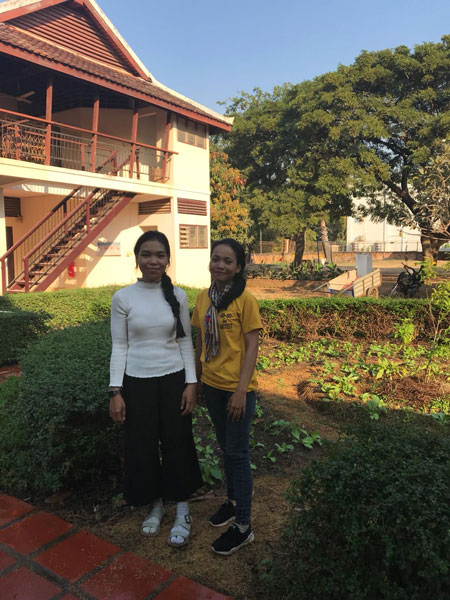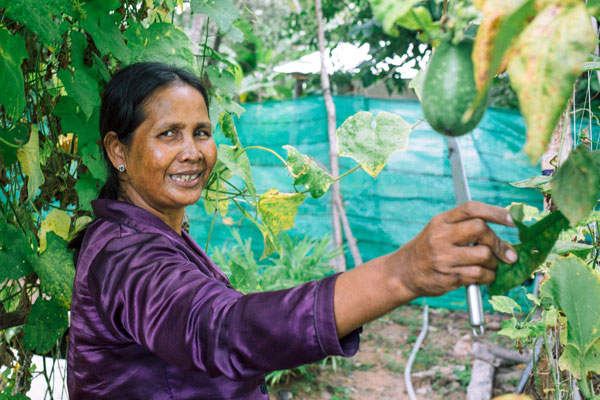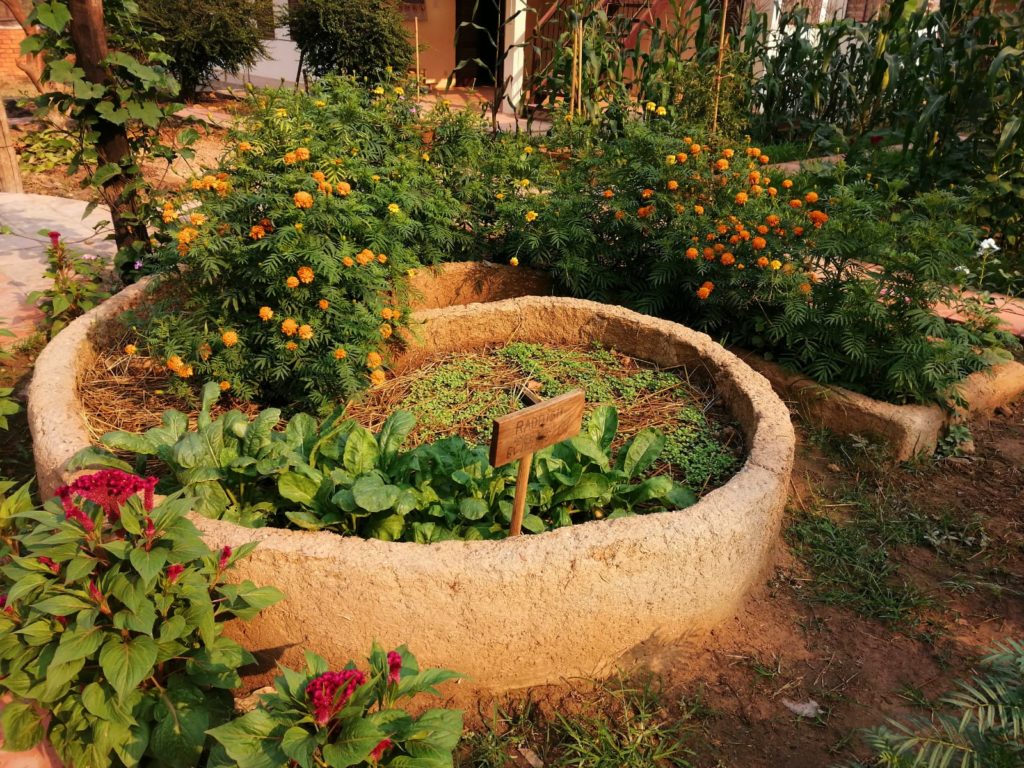After launching our Green Project at the beginning of 2018, we would like to go further with our mission of sustainable nutrition and develop our professional training programme. This is why we have taken the decision to launch a new programme on agroecology in November 2020. Let’s take a closer look at what this would involve, as well as the short- and medium-term objectives of this innovative project which is a real investment for the future.
Cambodia’s population is essentially rural (76,6% in 2018), with one third of its inhabitants trying to survive with less that 1$ a day; the country is now facing the same problems European agriculture has been facing since the end of the last century.
The conventional, intensive farming that is currently being practised in Cambodia uses many chemical inputs. With the predominance of rice monoculture, the country is obliged to import the large majority of its vegetable produce (estimated at 80%). The combination of monoculture and extensive use of pesticides prevents the regeneration of the soil, causing a drop in the yields of agriculture production.
Today, there are few actors in Cambodia offering concrete solutions to these issues, such as awareness campaigns and training of the population in sustainable, environmentally friendly farming. At the Bayon School, we feel that transmitting the principles in agroecology could be a long-term solution.

Agroecology is based on applying ecological concepts and principles to optimize interactions between plants, animals, humans and the environment, while taking into consideration the social aspects that need to be addressed for a sustainable and fair food system ((source FAO.org). It is based primarily on enhancing biodiversity, waste recycling and crop rotation, making it possible to diversify crop production and remove the need for chemical input.
Since 2018, the Bayon School has been running a sustainable agricultural project by training some of the families of our pupils in agroecology. By planting vegetable gardens on their plots, they are now able to bring in extra income by supplying the canteen at the primary school with locally grown, pesticide-free vegetables.
This project is currently improving the living conditions of 11 families of the primary school, as they produce close to 30 kg of vegetables each day.

In order to go further in our mission of raising awareness and educating, we would like to create a new professional training programme in agroecology. We are currently working on setting up this school with the association Vivre de sa Terre, which already has some experience in agro-ecological professional training in Battambang. Vivre de sa Terre is helping us create the pedagogical content of our programme as well as training our future teachers, En and Sreyleak, who are currently learning how to improve their teaching skills and learning techniques, management and entrepreneurship, sales, marketing and accounting.

After studyingclosely the training experience of Vivre de sa Terre, we have decided to create a short, one-year programme, including several months of internship, the aim of this programme being to allow our students to be rapidly employable. We would like to open this new programme to 10 youths aged 17-20 years living in and around Siem Reap. The programme will allow us to train agro-ecological technicians, who would also be capable of creating projects and putting into practise the values of sustainable development in their future careers.
The teaching content of the programme will need to meet these two criteria, which are essential to the success of the project. In the space of one year, our future students will have gained both technical skills (how to restore the soil’s fertility, protect crops, transform and recycle production, etc.) as well as entrepreneurial know-how (communication, sales and income management, how to work together and innovate, development of soft skills, etc.).
Our medium- and long-term ambition is to promote awareness and the value of more responsible farming practises in Cambodia. To achieve this goal, our first intake of students will need to become the ambassadors of agroecology in Cambodia, where the market for organic produce is still a niche market just waiting to develop. It is a real investment for the future.


